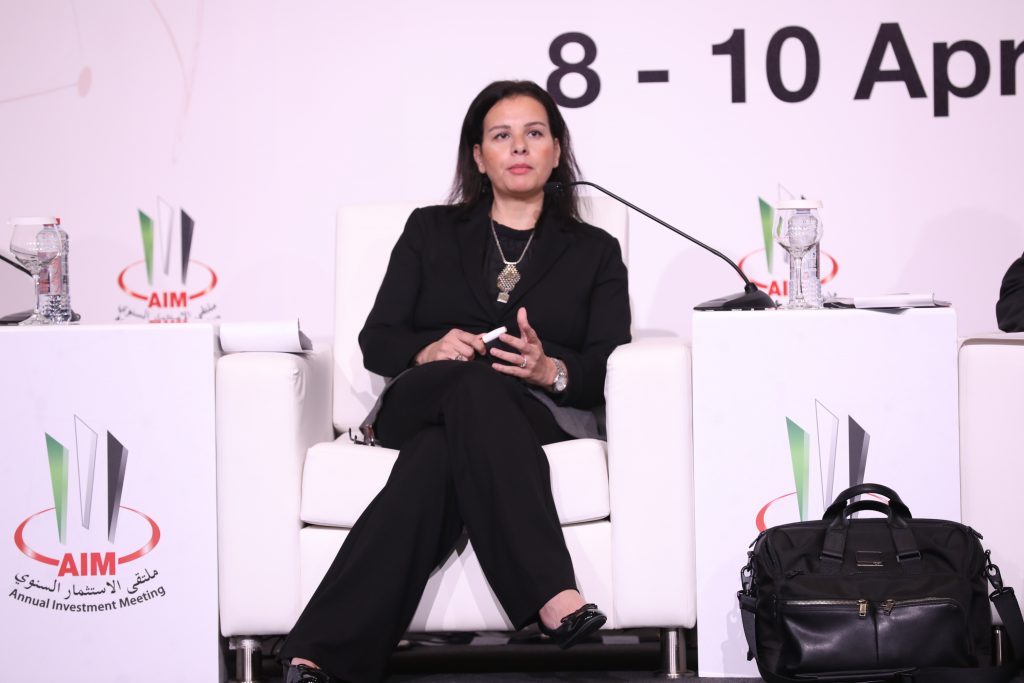Dubai – Speakers in a panel this Monday (8) at the Annual Investment Meeting (AIM), a conference on foreign direct investment in Dubai, the UAE, discussed ways to avert growing economic protectionism around the world.
The panel “Countering the Global Rise of Protectionism Policies for Sustainable Growth” featured the likes of Amal El Malla (pictured above), chief of the Arab States Office of the International Trade Center (ITC). In an interview with ANBA, she explained that businesses themselves must work their way back from government protectionism by seeking out different markets and FDI flows. “This could sound too optimistic, I’d like to say that if companies know what they want, they do their homework, they do their feasibility studies as investors, traders and exporters. So, it’s about survivalist theory. In order to survive you need to compete. And in order to survive this FDI-packed market you must stay relevant, and being relevant means being competitive,” she said.
She notes that although governments tend to embrace protectionism, they need to adapt to the globalization process, albeit gradually. “Some companies and organizations will transfer knowledge to countries so they may engage in good practices, but governments fail to adopt these practices. And this (knowledge transfer) must be a bottom-up approach,” Malla said of the strategy that looks to encourage innovation and intellectual capital going from individual to company and from there to government.
Malla sees Brazil as a major emerging economy and believes economies of this kind will naturally tend to become more and more open. “Brazil must also consider joining this new age of development, which I view as natural and organic, of local and global economy,” she said.

Also at the debate, ALAF Capital AS founder and CEO Fatima Al Arabi believes protectionism is not the answer. “Actually, you try to fix a mistake making another one. And for me, a mistake is grappling with theories while everybody is defending globalization, and ignoring large economies,” she argued, mentioning important companies from developed countries such as Facebook, Amazon and Netflix that are competing in several countries.
“We all agree that trade is important. What we disagree on is its benefits. How to share them? Tensions between countries exist because their governments don’t try to make sure that this activity benefits will be distributed to every sector of the society. Some people receive nothing. We think politicians have answers to problems, but some of them are the problem,” said Yonov Frederic Agah, deputy director-general of the World Trade Organization (WTO), also at the panel.
Agah says it is necessary to know what the costs of the non-distribution of benefits are, which results in loss of competitiveness. “We must look from two perspectives: what do governments have to do? And, as market players, you must force governments to have discussions on this. Think that theses issues affect your lives, not only trade policies,” concluded Agah to the audience of investors.
Translated by Guilherme Miranda & Gabriel Pomerancblum




